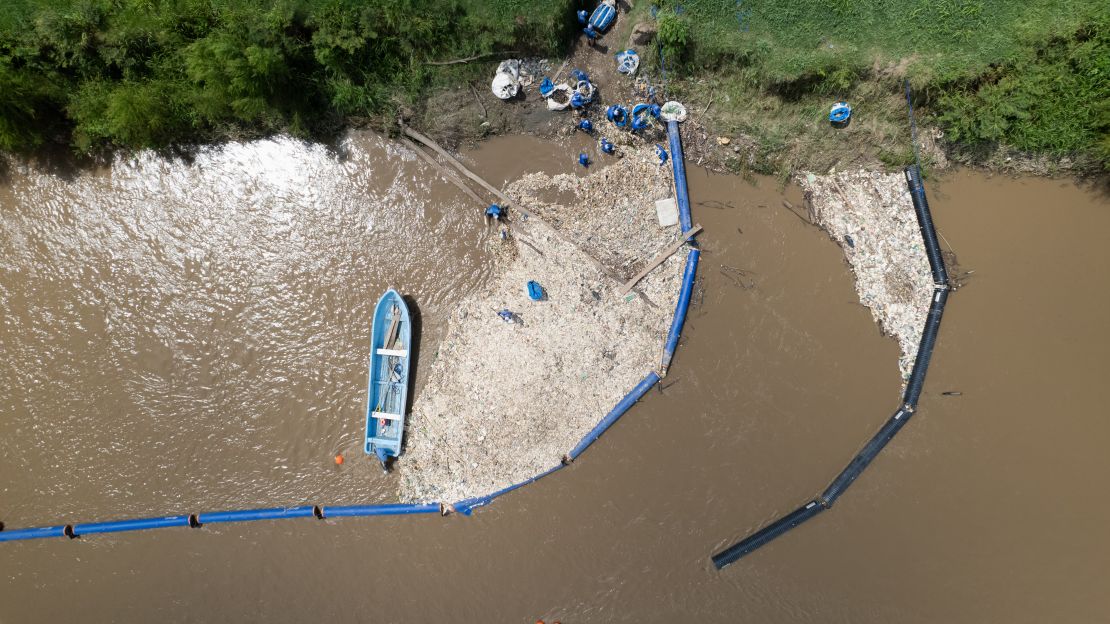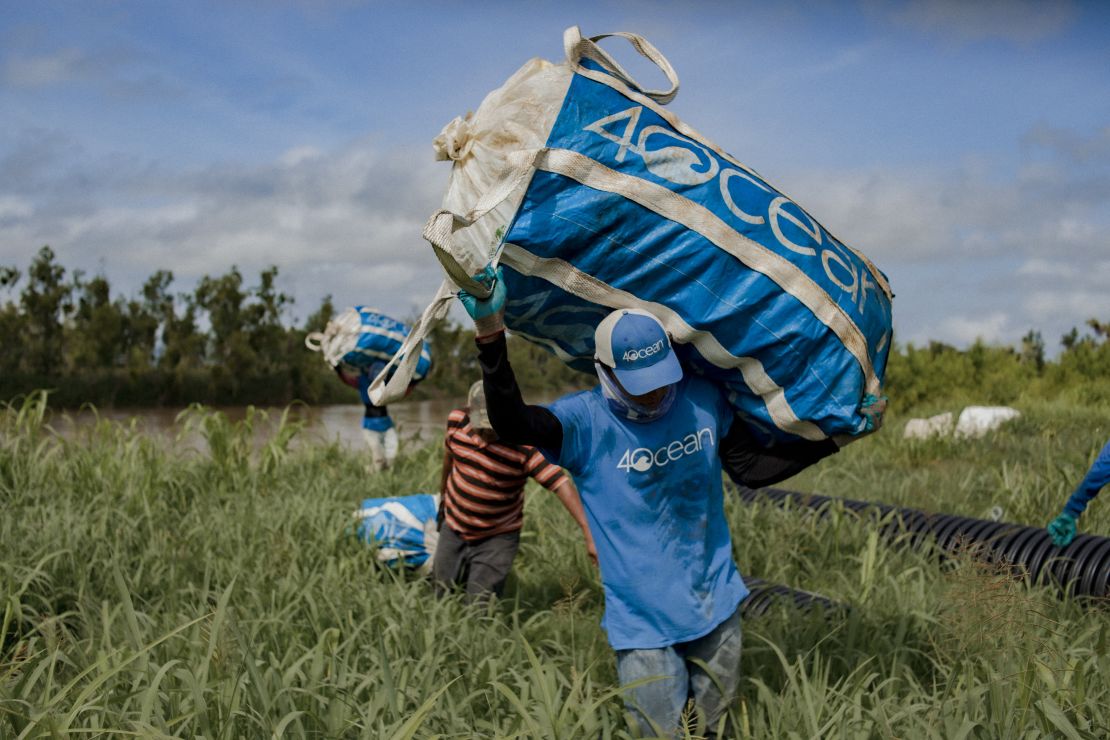Editor’s Note: Call to Earth is a CNN editorial series committed to reporting on the environmental challenges facing our planet, together with the solutions.?Rolex’s Perpetual Planet Initiative?has partnered with CNN to drive awareness and education around key sustainability issues and to inspire positive action.
At the mouth of the Motagua, Guatemala’s longest river, 40 million pounds (18 million kilograms) of trash pours into the ocean each year.
It is one of the most polluted rivers in Central America, winding 302 miles (486 kilometers) through Guatemala before flowing into the Gulf of Honduras and, ultimately, the Caribbean Sea. By some estimates, the trash carried downstream by the Motagua River makes up roughly 2% of the total plastic waste that enters the world’s oceans each year.
“Every 60 seconds, a dump truck full of plastic is entering the ocean (globally),” Alex Schulze, co-founder and CEO of 4ocean, a US-based startup that wants to end plastic pollution, told CNN.
Schulze founded 4ocean in 2017 along with his friend Andrew Cooper following a surfing trip in Bali, Indonesia, where they were shocked by the overwhelming quantity of plastic pollution in the ocean. The company collects trash from oceans, rivers and coastlines and converts it into products such as bracelets, building materials or fuel, which it then sells. Whatever the company cannot recycle, it sends to a landfill. Today, it has teams in Guatemala, the US state of Florida, and Indonesia and estimates it has collected more than 37?million tons of trash since 2017.
In Guatemala, in addition to trash-collecting missions undertaken by locally hired crews, the company installed a boom, a floating fence-like barrier, 30 miles (48 kilometers) upstream from the mouth of the Motagua River. Made of a durable fabric, the boom is designed to catch debris before it enters the bay, without disturbing wildlife.

“We hope to stop most of the trash and plastic that’s coming down the Río Motagua from inland during the rainy season before it reaches the ocean,” said Kevin Kuhlow, 4ocean’s country manager for Guatemala.
But the rainy season initially took a toll on the boom itself. Last year, a heavy storm dislodged the boom and fragments of it washed away downstream. To prevent this from happening again, 4ocean dug holes into the riverbed to securely anchor the system.
The company estimates that the boom has captured 100,000 pounds (45,000 kilograms) of trash since its installment in 2023. While that number is only a fraction of the total trash that flows downriver, 4ocean hopes that it can make a difference by raising awareness about plastic pollution in the local community.
A lack of waste disposal infrastructure in Guatemala, combined with a lack of awareness of the causes of plastic pollution, means that many dispose of trash improperly, according to 4ocean.?This not only has an impact on the environment, but it endangers the livelihoods of locals who depend on fishing, which is why the company hires local people to work on the project.
Already, some of its Guatemalan employees say they have noticed a change in how they and the people in their community treat the environment.
“(We’re) not contributing by throwing out more plastic, but instead telling people ‘Please don’t pollute the environment,’” 4ocean employee Cristina Ramírez told CNN.

4ocean is not the only company working to pull plastic from the Motagua River. In 2023, non-profit organization The Ocean Cleanup?erected its own barricade in Las Vacas, a tributary of the Motagua River, located close to Guatemala City, the country’s capital. It recently announced it would be deploying another of its interceptors in the basin of the Motagua.
Other organizations, both local and international, came together this year to form the Alliance for the Motagua River, which aims to restore and clean up the river basin. One of the member organizations, Fundación Crecer, creates accessible educational programs for children that teach them how to recycle and compost.
Schulze recognizes that pulling trash from the ocean won’t solve the issue alone. It starts, he said, with education and changes in the way people and corporations use and produce plastic.
“We say it a lot that cleaning the ocean alone will not solve the ocean plastic crisis. We have to stop it at the source and turn off the tap,” he said.



